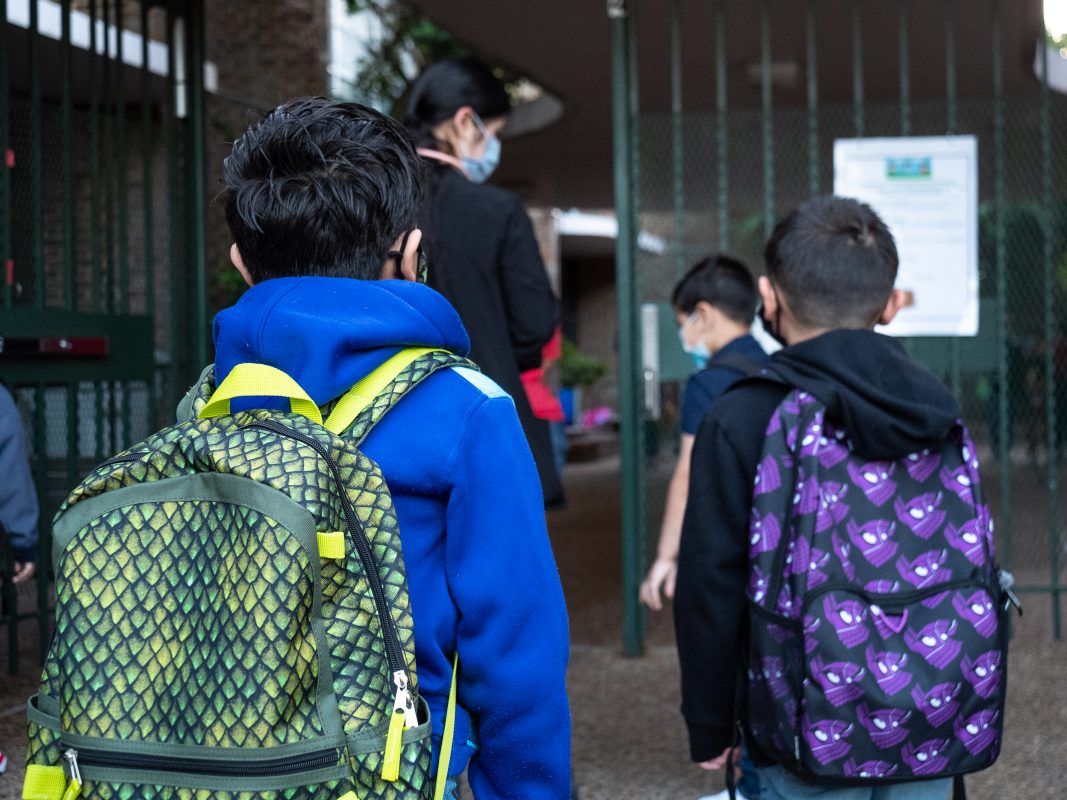Lucio Vasquez / Houston Public Media
As children across Texas head back to school for the 2021-2022 academic year, controversy surrounds the elementary-level reading curriculum developed by the Texas Education Agency. The curriculum, which includes multiple references to the Bible and Christianity, has sparked concerns among parents, educators, and advocacy groups.
The Texas Freedom Network recently released a report highlighting issues with the proposed curriculum. David Brockman, a nonresident scholar in religion and public policy at Rice University’s Baker Institute, authored the report, pointing out that the materials fail to capture historical reality and place too much emphasis on Christianity while neglecting coverage of other religions.
According to Brockman, “The curriculum contains far too much coverage of Christianity and the Bible and far too little coverage of other religions that make up American society today. Instead of being religiously neutral, the curriculum tends to promote Christianity over other religions, and in some cases, presents biblical texts in a manner more appropriate for Sunday school than public schools.”
The proposed materials were developed by the Texas Education Agency after the Texas Legislature authorized the agency to create Open Education Resource materials. Schools using these state-created curricula would receive additional per-student funding, incentivizing their adoption.
When news outlet The 74 first reported on the new curriculum in May, Texas Education Commissioner Mike Morath defended the content, stating that it aims to increase cultural literacy. Morath argued that understanding religious allusions in classic works of American literature is essential for students to grasp the American cultural experience.
Critics, however, argue that the instructional materials favor Christianity over other religions. Rocío Fierro-Pérez, the political director of Texas Freedom Network, expressed concerns about the inaccuracies in the curriculum, warning that it could turn Texas public schools into religious institutions rather than places of unbiased education.
Ashia Papari, an organizer and advocate with Students Engaged in Advancing Texas, emphasized the importance of maintaining a diverse and inclusive educational environment. Papari highlighted the potential for division among students if a single religion is promoted over others, leading to feelings of exclusion and discrimination.
In response to the criticism, the Texas Education Agency stated that the religious source material is shared in the context of historical knowledge building and is presented in a manner appropriate for a public-school setting. The agency encouraged feedback and review of the curriculum to address any concerns about factual inaccuracies or bias.
If approved by the State Board of Education in November, the new curriculum will be available to schools in the 2025-26 school year. The decision will have far-reaching implications for the education system in Texas, shaping the way students learn about religion, history, and cultural literacy in the years to come.


